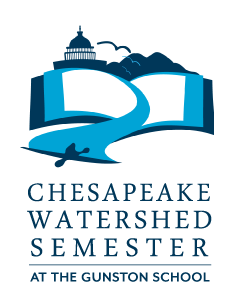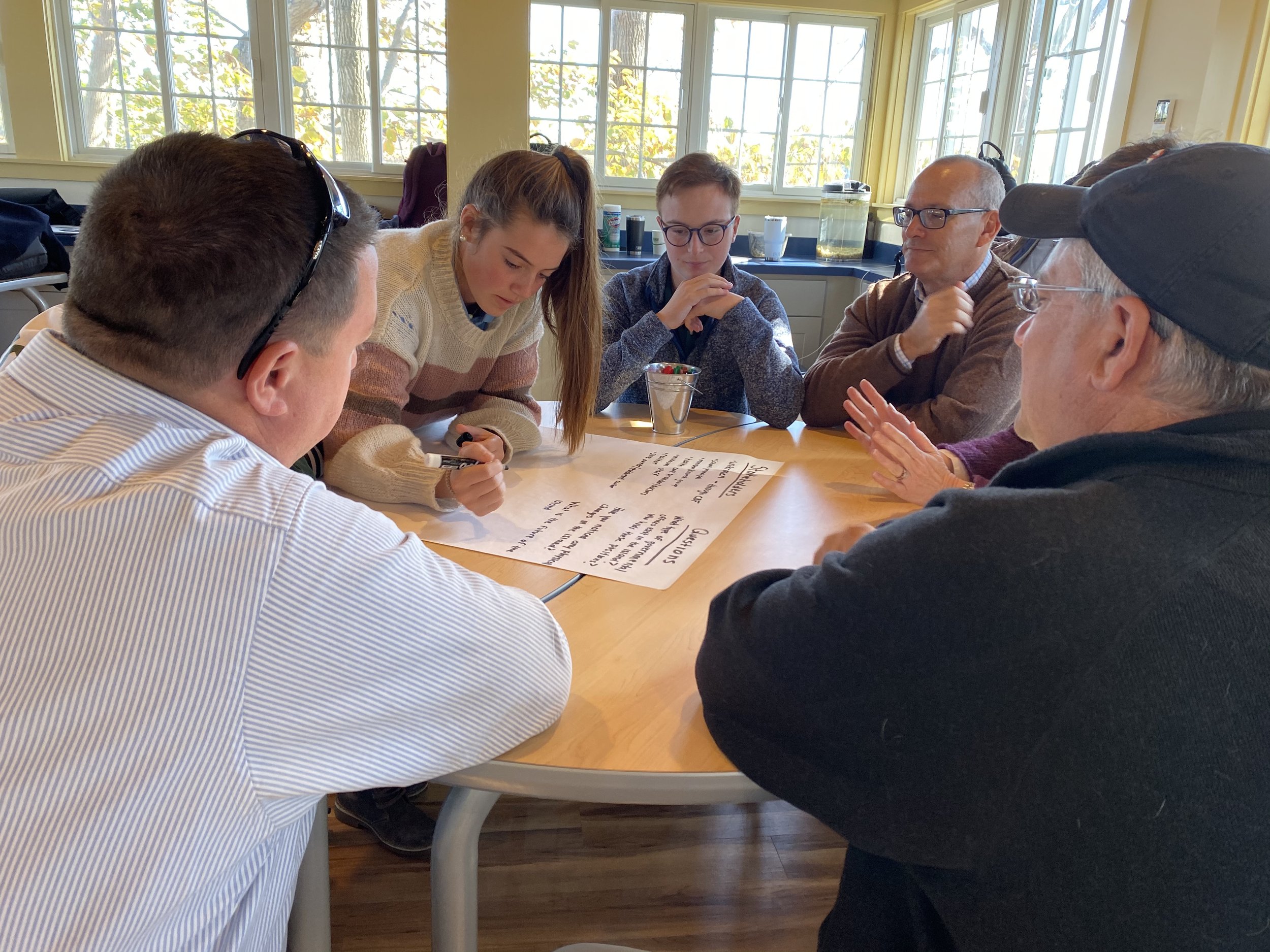Core Academic Classes
Course Descriptions
Environmental Science & Restoration Ecology
The Chesapeake Bay is the largest estuary in the United States and home to 17 million people. In this course, we investigate the pieces, patterns, and processes that affect the health of the Chesapeake Bay. Historical threats such as sedimentation, eutrophication, and land-use remain while climate change and sea-level rise are increasingly important. In laboratory and field studies, students will build a robust toolbox of primary research techniques. This course can be combined with another semester of Environmental Science to prepare students to take the College Board’s Advanced Placement exam in the spring.
American Government Seminar
In classroom discussions, conversations with community members, research-based projects, debates, and the study of specific environmental cases, students achieve a deep understanding of the American constitutional system and environmental politics. This class will help students to discover the multiple levels at which environmental policy operates. Students will meet with local, state, national, and international environmental leaders. By exploring their own beliefs and political voices, students will cultivate empathy and an awareness of contemporary place-based environmental issues and policies.
Literature of Land and water
This course explores how American literary traditions have shaped our interactions with the land and water. Students will read, discuss, and reflect upon both fiction and nonfiction work. Ranging in scope from nineteenth-century Transcendentalism to modern-day environmental poetry and memoirs, the curriculum encompasses numerous authors and genres and explores the diverse ways in which Americans have defined nature. The course also provides a forum for students to make connections between CWS classes and narrate their personal journeys throughout the semester via a reflective journal.
Capstone Action Project
The hallmark of the Chesapeake Watershed Semester is the cross-disciplinary thesis each student completes. Students work with teachers and mentors from the community to design the scope and sequence of the project, and many students focus their projects on their hometowns. The final product includes a deeply researched paper, a detailed plan for action and engagement on the issues, and the public presentation of their work. Past action projects have included planting pollinator gardens with educational signage, organizing beach clean-ups, oyster aquaculture research, and public awareness campaigns.
Leadership Seminar
All students participate in an integrated, skills-based leadership course. The course begins with a field Expedition to strengthen group dynamics and explore leadership capacities and concludes with students presenting their Capstone Project. Through weekly conversations and guest presenters, students explore the character and qualities of great leaders, learn to lead effective teams, and explore how to lead in their personal and academic lives.



